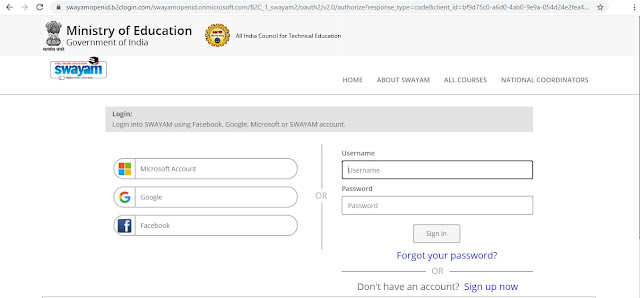Free Online Course on Computational Science in Engineering by Swayam By Prof. Ashoke De from IIT Kanpur
Credits :Swayam site
Computational Science in Engineering Free Course Details
| Course Type : | Elective |
| Duration : | 8 weeks |
| Start Date : | 15 Feb 2021 |
| End Date : | 09 Apr 2021 |
| Exam Date : | 24 Apr 2021 |
| Enrollment Ends : | 15 Feb 2021 |
| Category : |
|
| Level : | Undergraduate/Postgraduate |
The Computational Science in Engineering is a rapidly evolving field that exploits the power of computation as an approach to major challenges on the frontiers of natural and social science and all engineering fields.
The primary focus lies on developing problem-solving methodologies and robust tools for numerical simulation.
The goal is to present the fundamentals of scientific computing, with short codes to implement the key concepts. This includes a framework for applied mathematics such as Linear Algebra, ODEs and PDEs.
To understand phenomena and processes from science and engineering, these simulations require advanced skills in mathematical modelling, numerical analysis, efficient algorithms, computer architecture, software design and implementation, validation, and visualization of results.
INTENDED AUDIENCE : Freshman/Sophomore undergraduate students and postgraduate students of Aerospace/Mechanical/Chemical/Civil Engineering
PREREQUISITES : Basics of Mathematics and programming
INDUSTRIES SUPPORT : Aerospace, Automobile, Chemical and Power Generation and Defense Industries
Course layout
Week 1: Linear Algebra: Introduction to Vectors, Vector spaces and subspaces, Solving Linear systems
Week 2: Linear Algebra: Orthogonality, Determinants, Eigenvalues & Eigen vectors, SVD
Week 3: Ordinary Differential Equations: ODE, homogeneous and non-homogeneous ODEs, second order linear ODE, higher order ODEs
Week 4: Solution of Higher Order ODEs, Fourier Analysis, Fourier Integrals, Laplace Transforms
Week 5:Partial Differential Equations: Classification, 1D & 2D equations, BC, 2nd order PDEs
Week 6: Basis of numerical analysis, errors, stability, Interpolation and extrapolation
Week 7: System of linear algebraic equations and eigenvalue problems: Direct methods, Iterative methods, convergence analysis, Eigenvalues and Eigenvectors, bounds on eigenvalues, Methods for symmetric matrices and arbitrary matrices
Week 8: Solution of ODEs: Difference equation, Numerical methods, convergence, stability, Single step and multistep methods, Predictor-corrector methods, stability analysis of multistep methods, IVP (shooting methods), BVP (methods and solutions)
Instructor Introduction
Dr. Ashoke De is currently working as Associate Professor in the Department of Aerospace Engineering at Indian Institute of Technology Kanpur.
He leads large scale initiatives in the modeling of turbulent reacting and non-reacting flows at IIT Kanpur.
So far, he has authored more than 130 peer reviewed articles in journals and conferences.
His primary research focus is the emerging field of computational mechanics with particular interest in combustion and turbulent flows.
How to Apply for Free Computational Science in Engineering course by an IIT Kanpur Professor?
1 To apply for this course click on the link given below
2 Register yourself with an email id and password
Swayam Free Computational Science in Engineering course registration view
Course certificate
The course is free to enroll and learn from. But if you want a certificate, you have to register and write the proctored exam conducted by us in person at any of the designated exam centres.
The exam is optional for a fee of Rs 1000/- (Rupees one thousand only).
Date and Time of Exams: 24 April 2021 Morning session 9am to 12 noon; Afternoon Session 2pm to 5pm.
Registration url: Announcements will be made when the registration form is open for registrations.
The online registration form has to be filled and the certification exam fee needs to be paid.
More details will be made available when the exam registration form is published. If there are any changes, it will be mentioned then.
Please check the form for more details on the cities where the exams will be held, the conditions you agree to when you fill the form etc.
CRITERIA TO GET A CERTIFICATE
Average assignment score = 25% of average of best 6 assignments out of the total 8 assignments given in the course.
Exam score = 75% of the proctored certification exam score out of 100
Final score = Average assignment score + Exam score
YOU WILL BE ELIGIBLE FOR A CERTIFICATE ONLY IF AVERAGE ASSIGNMENT SCORE >=10/25 AND EXAM SCORE >= 30/75. If one of the 2 criteria is not met, you will not get the certificate even if the Final score >= 40/100.
Certificate will have your name, photograph and the score in the final exam with the breakup. It will have the logos of NPTEL and IIT Kanpur. It will be e-verifiable at NTPL official site
Only the e-certificate will be made available. Hard copies will not be dispatched.
Books and references
1. Introduction to Linear Algebra – Gilbert Strang
2. Differential Equations – G. F. Simmons
3. An Introduction to Ordinary Differential Equations – E. A. Coddington
4. Partial Differential Equations for Scientists and Engineers – S. J. Farlow
5. Atkinson, K. E., An Introduction to Numerical Analysis, John Wiley & Sons, 1978.
6. Numerical recipes: the art of scientific computing - William H. Press, Saul A. Teukolsky, William T. Vetterling, Brian P. Flannery, Cambridge University Press, 2007
7. Ferzziger, J.H., and Peric, M., Computational Methods for Fluid Dynamics, Springer, 2002.
8. Computational Fluid Dynamics: The Basics with Applications, Anderson
9. Computational Fluid Flow and heat transfer, Tannehill, Anderson, Pletcher
FAQ's - Frequently Asked Questions
Q1. What does Computational engineers do?
Ans. Computational engineers use computer systems and advanced computational techniques to improve engineering results.
Q2. What is the salary of Computer engineer?
Ans. 25K to 150K per month.
Q3. How can I apply for Computational Science Engineer for Free?
Ans. Direct link to apply is given on https://divya-naukri.blogspot.com/




0 Comments
Please do not enter any spam link in the comment box